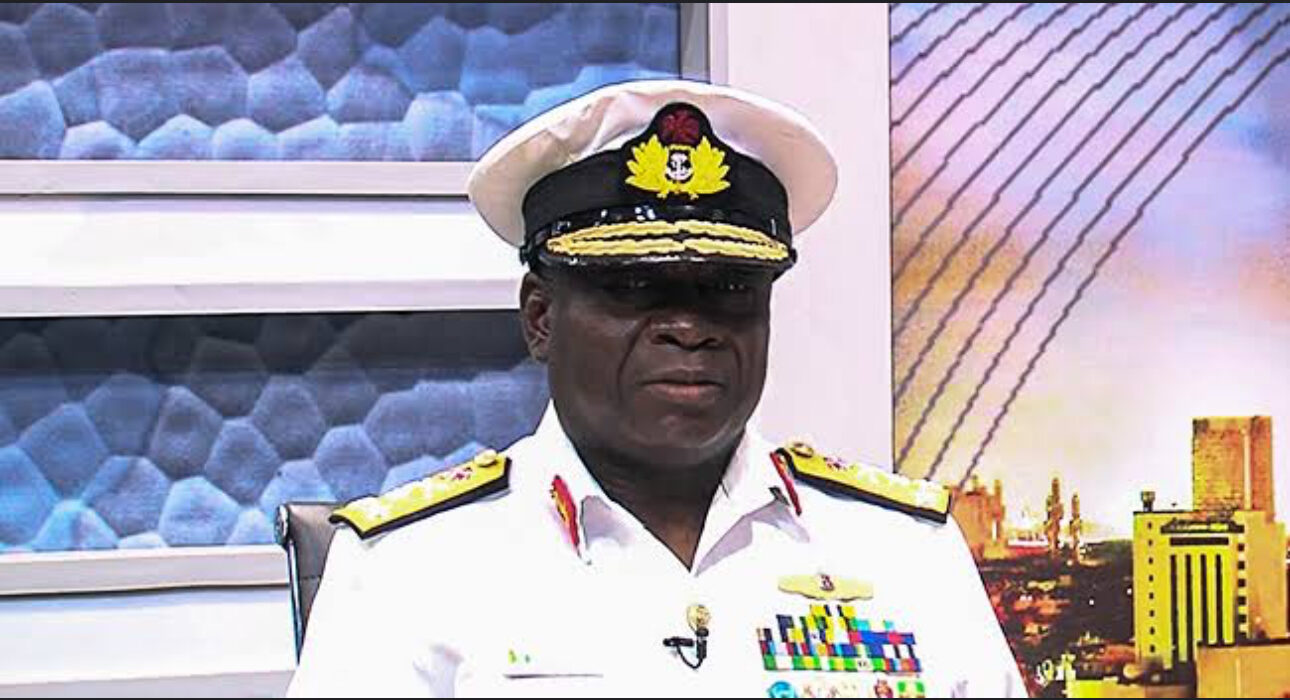Ogalla Calls for More Naval Manpower, Says 30,000 Officers Not Enough

Nigeria’s Chief of Naval Staff, Vice Admiral Emmanuel Ogalla, has sounded the alarm over the escalating challenge of oil theft in the country’s maritime domain, declaring that the current strength of the Nigerian Navy—just over 30,000 personnel—is grossly inadequate to secure the nation’s vast coastline and critical oil infrastructure.
Speaking during a live interview on Channels Television’s flagship program Sunrise Daily, Ogalla said the Navy is stretched thin across a maritime region that covers nearly one-third of Nigeria’s landmass, severely hampering its ability to mount an effective response to oil theft, pipeline vandalism, and related maritime crimes.
“It would surprise you to know that the Navy is just about 30-something thousand [personnel], and we have a coastal maritime area that is one-third of the nation’s landmass.
“So, we are building on this number and increasing recruitment and enlistment annually,” Ogalla said.
Despite commendable efforts by the Navy in recent years—including patrols, raids, and the seizure of illegal oil facilities—oil theft continues to drain Nigeria’s economy, with billions lost in revenue and environmental destruction across the Niger Delta.
Ogalla acknowledged that while tactical interventions have yielded results, long-term success requires a dual approach—combining both kinetic (military) and non-kinetic strategies. He cited unemployment, illiteracy, and youth disenfranchisement as key drivers of the oil theft economy and called for broader socio-economic reforms to address root causes.
“You can’t win this war with force alone. We must deal with the socio-economic issues that push people into these illegal activities,” he added.
To bolster legal responses, Vice Admiral Ogalla also revealed that the Navy has submitted a proposal to the Minister of Justice, Lateef Fagbemi, seeking the establishment of special courts dedicated to prosecuting maritime offenses.
According to him, delays in the judicial process often allow arrested oil thieves to escape justice, undermining the Navy’s enforcement efforts.
“Swift prosecution will serve as a deterrent. We need a system that ensures maritime criminals are punished quickly and decisively,” he said.
Ogalla reassured the public that the Navy remains committed to internal accountability. He disclosed that several officers found complicit in oil theft operations have faced serious disciplinary measures—including demotions and dismissals.
“It’s too risky for any of our men to engage in oil theft. When they are caught, we deal with them without hesitation,” he warned.
In an effort to boost operational readiness, the Navy recently commissioned three new ships and three helicopters to improve surveillance and rapid response along Nigeria’s waterways.
These efforts are part of a broader national strategy known as Operation Delta Sanity, launched in partnership with the Ministry of Petroleum Resources to aggressively tackle oil theft and increase crude production.
Thanks to the operation’s early successes, Nigeria’s daily crude oil output has risen from 1.4 million barrels per day (bpd) to 1.8 million bpd. The federal government is targeting 3 million bpd by the end of 2025.
Vice Admiral Ogalla’s remarks highlight a critical national security and economic issue that continues to threaten Nigeria’s development. While the Navy has made commendable strides, Ogalla insists that without more personnel, faster legal processes, and investment in social stability, the fight against oil theft will remain an uphill battle.









